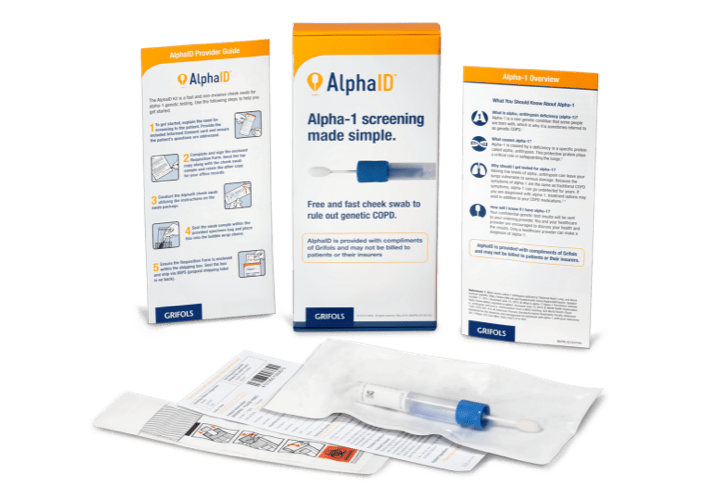Find out if their COPD is genetic by screening for alpha1-antitrypsin (AAT) deficiency
AlphaID™ offers fast, free, and accurate ways to screen patients for alpha-1. By screening, you can help ensure patients receive an accurate diagnosis and the right treatment plan.*

